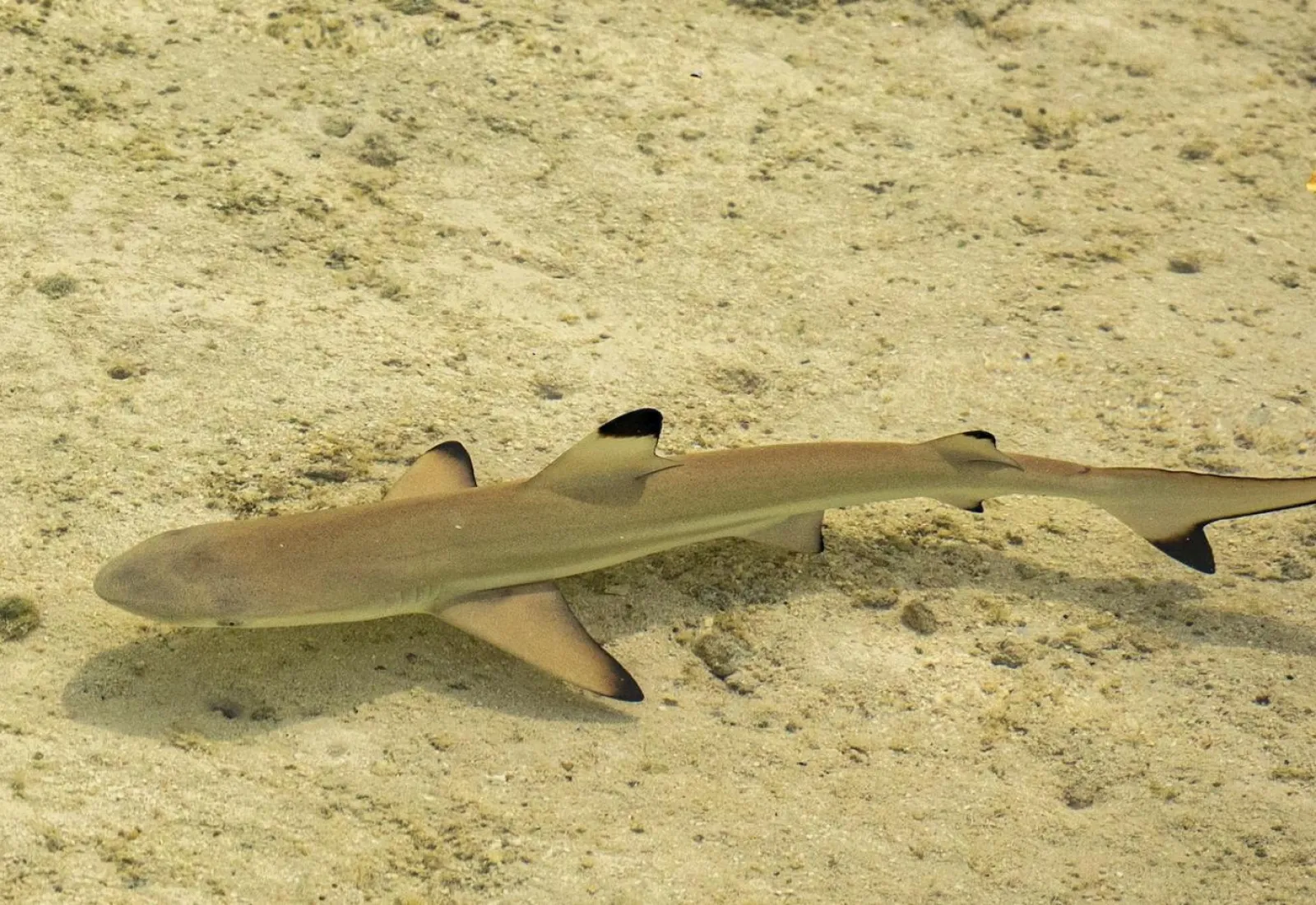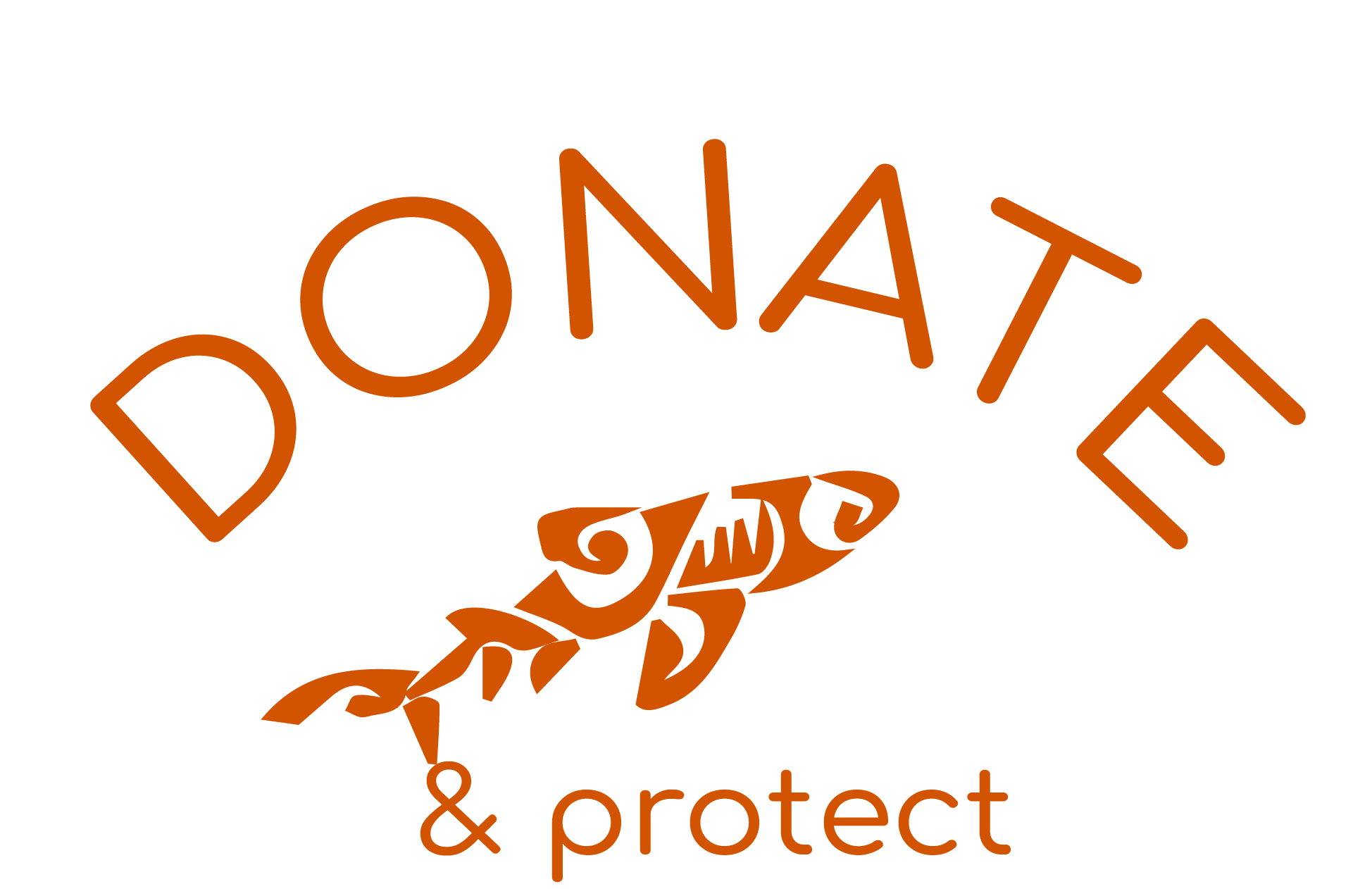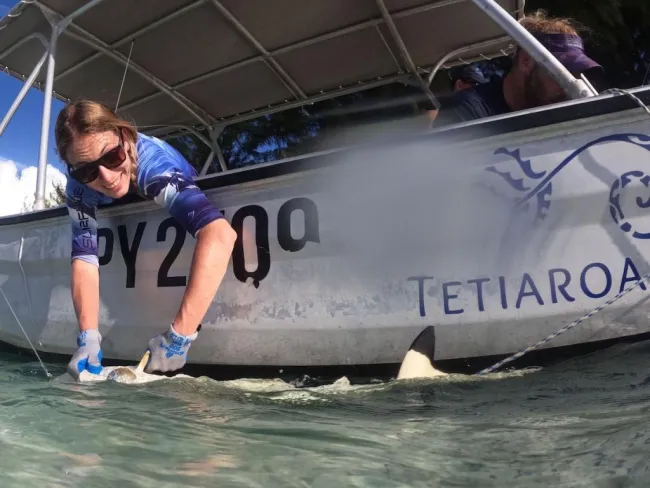Update : 2023
The Tetiaroa Reef Shark Project reached a huge milestone in 2023 with its 10th year of operation (initiated in 2014)!
The year was also highly successful, with three major highlights. First, we completed two field seasons, during which we fully refurbished the receiver array and deployed 22 new tags across two species (Blacktip Reef Sharks and Sicklefin Lemon Sharks) and a wide range of sizes, from juveniles just weeks old (~ 50 cm) to near-adults approaching 2 m in length. This included 15 new state-of-the-art predation tags for small juvenile sharks which will tell us if/when these newborns are eaten by a larger shark. This information will be unprecedented, as predation rates on shark pups are largely unknown.
In 2023, Fulbright fellow, Aarthi Kannan, continued her work on site recording shark behavior in the lagoon with baited remote underwater video systems (BRUVs). Aarthi collected hundreds of hours of video featuring sharks and many other atoll denizens that will now be used to shed new light on animal behavior in the lagoon, including when and where sharks are most active and whether sharks elicit avoidance by other fishes.
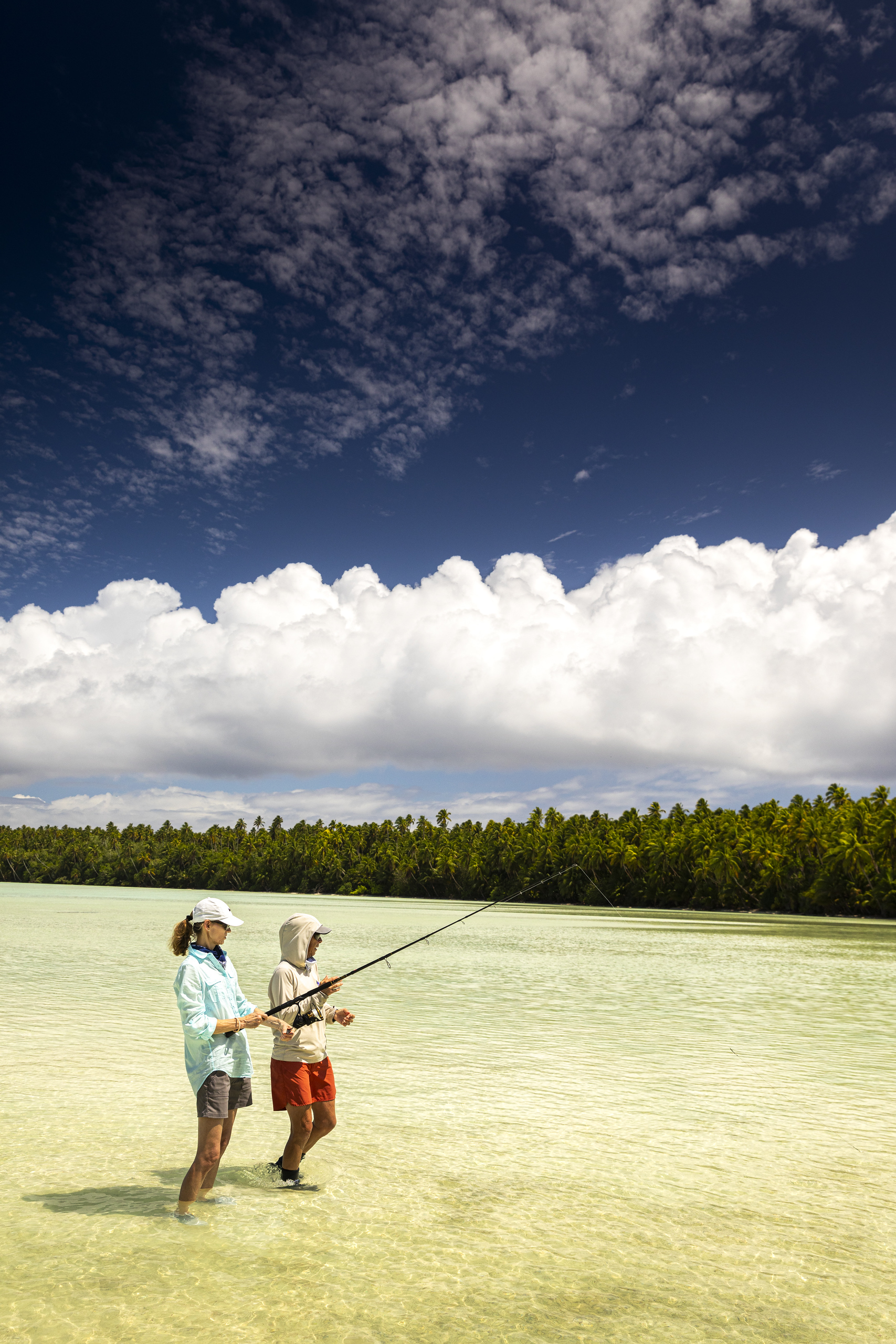
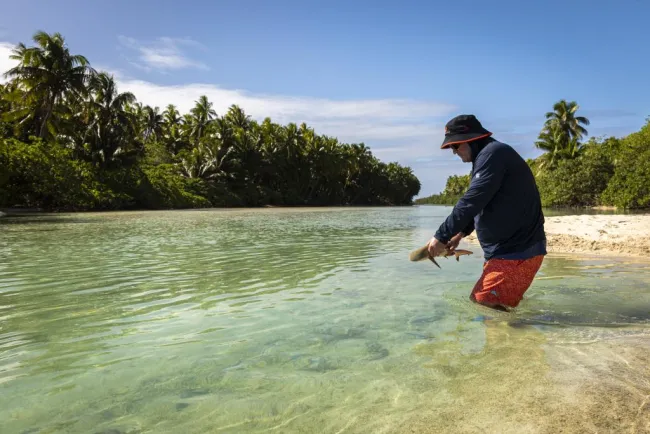 Return to the lagoon
Return to the lagoon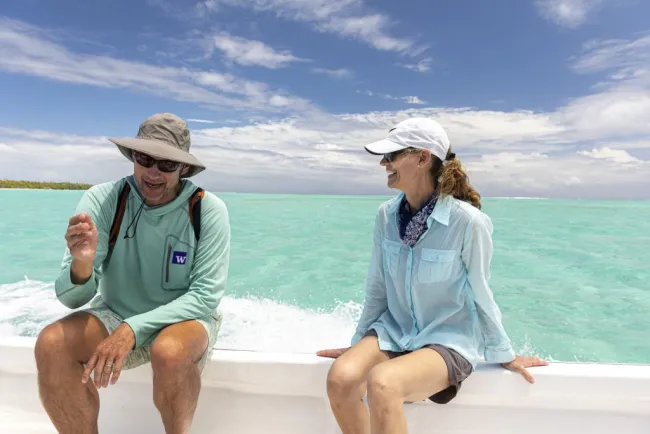 Planning the day's work
Planning the day's work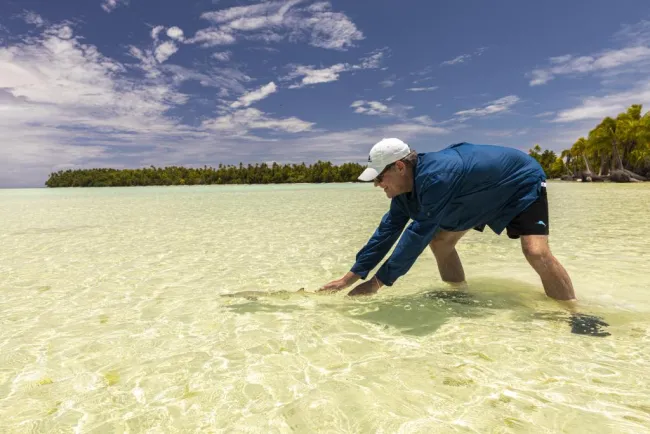 Releasing a lemon shark
Releasing a lemon shark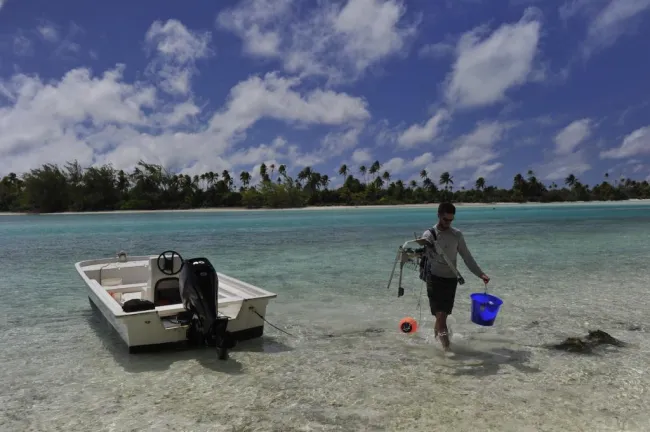 End to a day of shark-watching
End to a day of shark-watching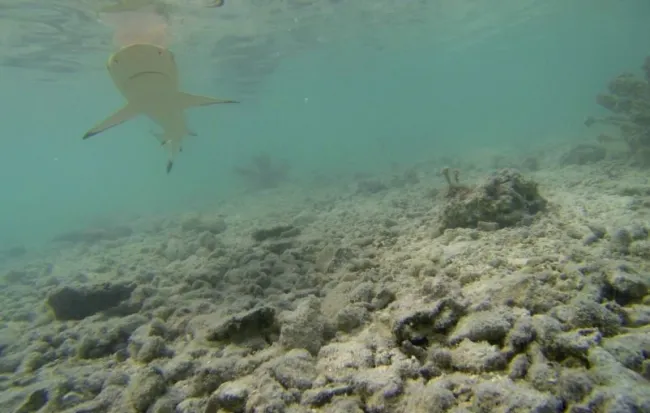 Baby blacktip reef shark
Baby blacktip reef shark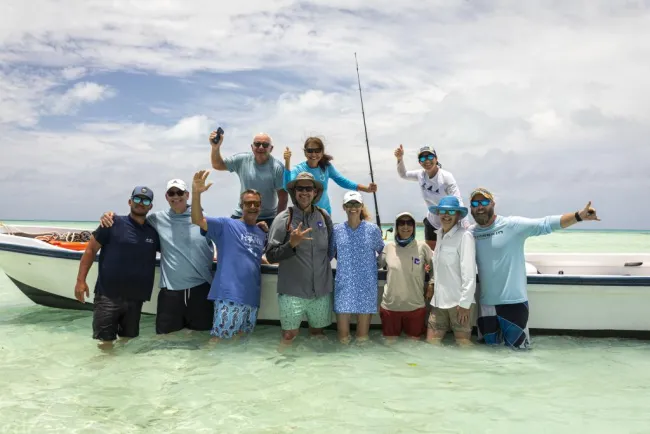 Shark team
Shark team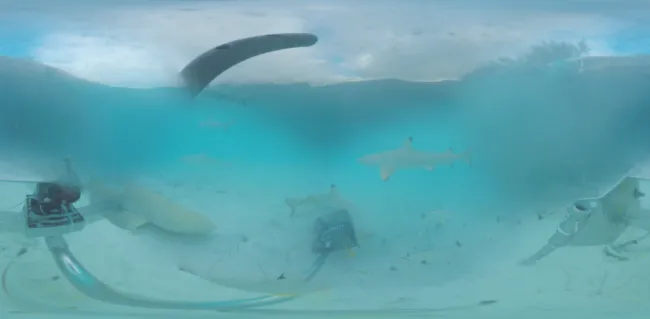 Shark observation in 360º
Shark observation in 360º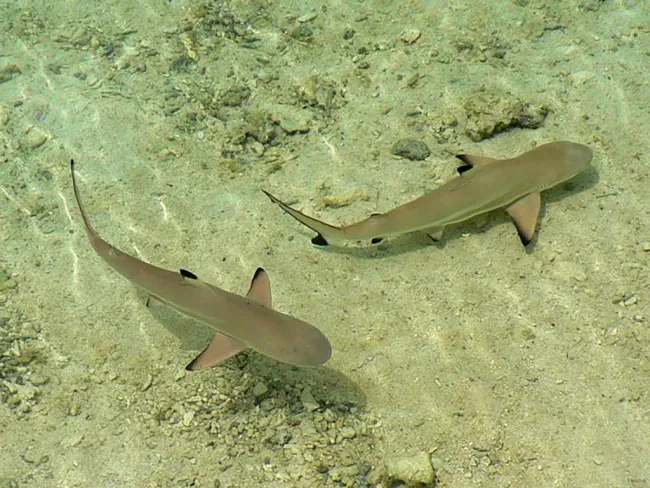 Blacktip sharks in the Tetiaroa lagoon
Blacktip sharks in the Tetiaroa lagoon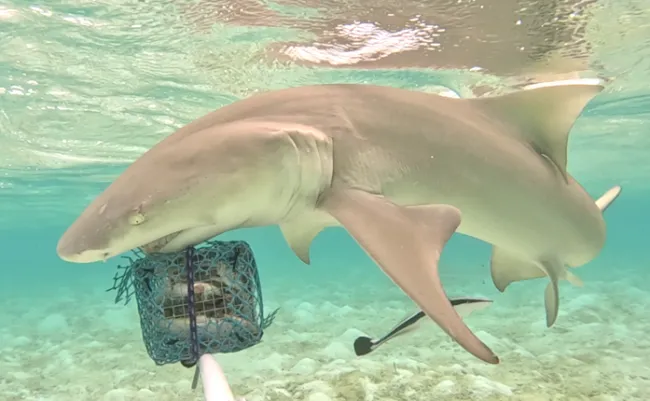 Found the bait
Found the bait
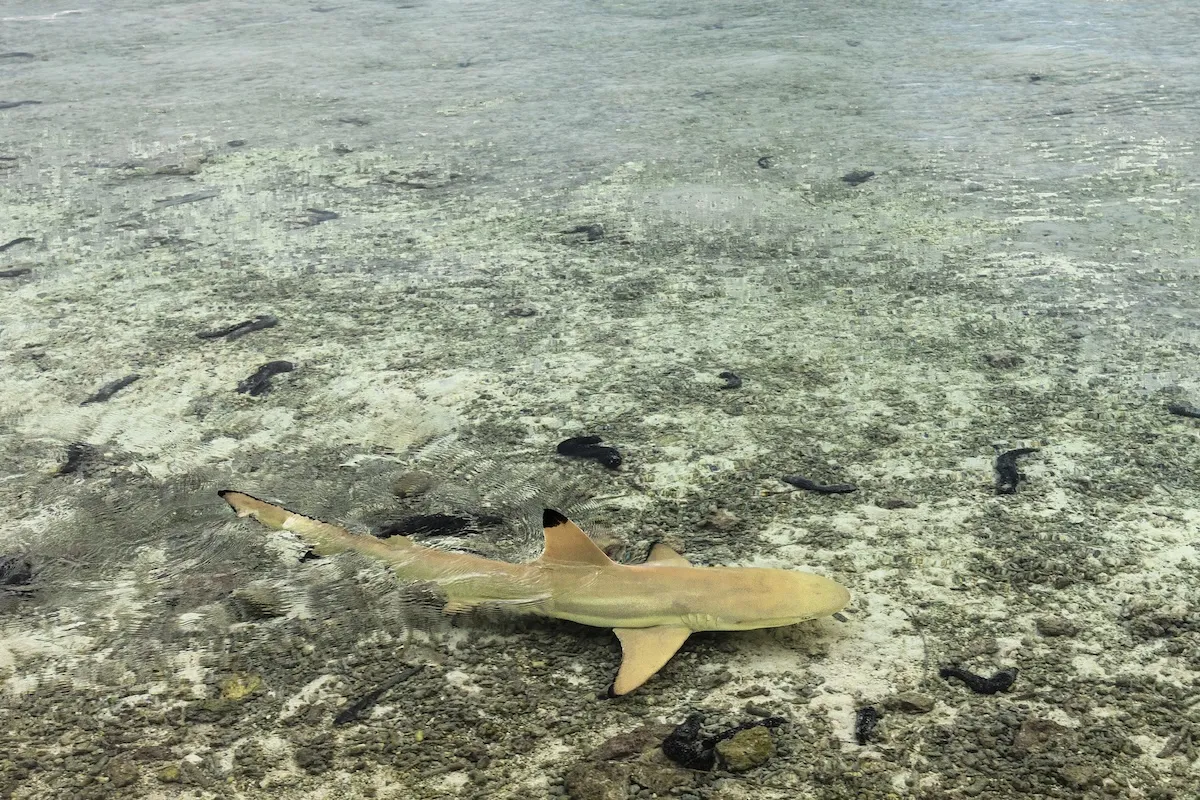
October-November 2022
In partnership with the Tetiaroa Society, scientists from the University of Washington, Florida International University, and the Centre de Recherches Insulaires et Observatoire de l’Environnement (CRIOBE) continued the first long-term study on the spatial of ecology of sicklefin lemon (Negaprion acutidens) and blacktip reef sharks (Carcharhinus melanopterus) inside Tetiaroa’s lagoon. During the trip, we equipped 15 more sharks with internal tracking transmitters, bringing us to a total of 32 blacktips and 13 lemons! We also serviced and downloaded all of the positional data from the 9 acoustic receivers in the lagoon, giving us tens of thousands of new shark locations dating back to the inception of the project (October 2021) and thus unparalleled capacity to examine movements of and interactions between blacktip and lemon sharks, and among adult and juveniles of each species, in lagoon environments.
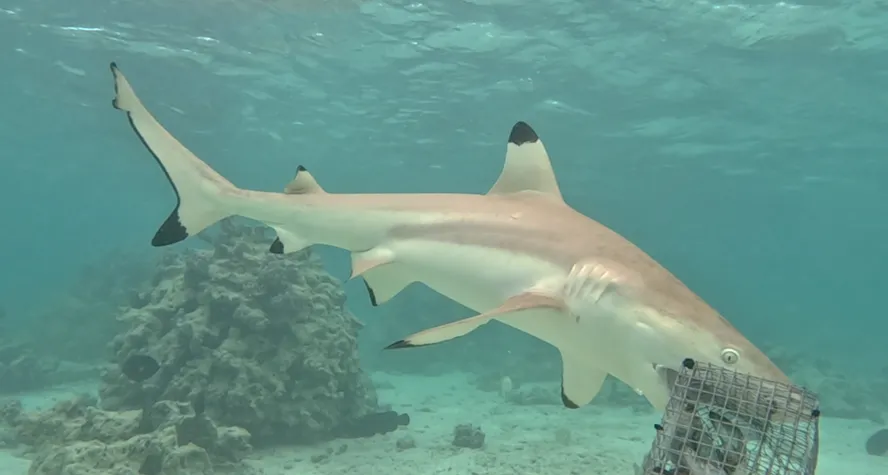
Finally, this 2022 trip served as the launching point for a new project aimed at using baited remote underwater video systems, or BRUVs, to better understand daily activity patterns of sharks in the lagoon and the effects of shark activity on other species in the ecosystem. Some of these BRUVs have been deployed in shallow water (< 1 m in depth) to target small, juvenile shark behavior for the very first time, while others have been deployed on the forereef, allowing us to record the presence and behavior of sharks and other species outside the lagoon. This BRUVs project is being led by Fulbright Fellow Aarthi Kannan, who will be in Tetiaroa as part of the shark team through June 2023.
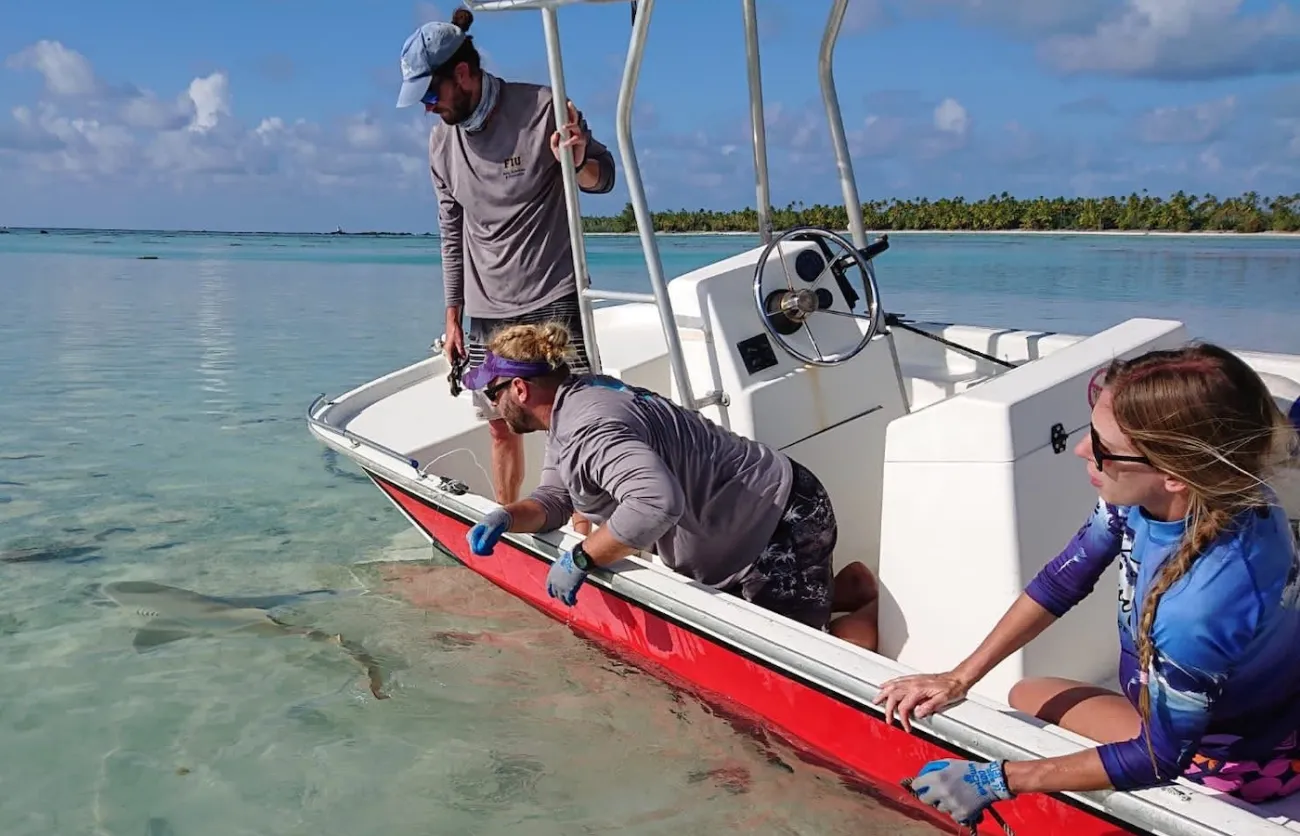
October 2021
In partnership with the Tetiaroa Society, scientists from the University of Washington, Florida International University, and the Centre de Recherches Insulaires et Observatoire de l’Environnement (CRIOBE) began the first long-term study on the spatial of ecology of sicklefin lemon (Negaprion acutidens) and blacktip reef sharks (Carcharhinus melanopterus) inside Tetiaroa.
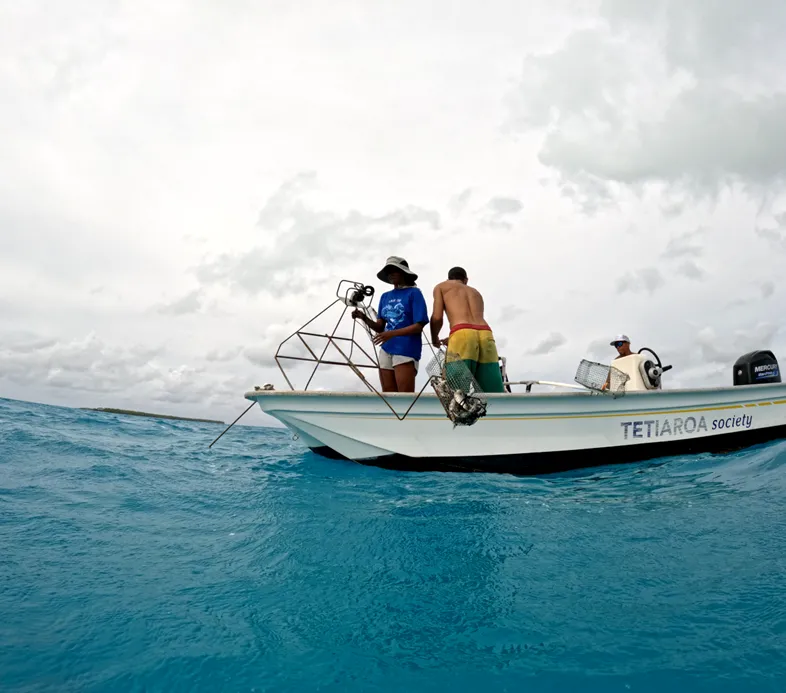
The collaborative research team was able to deploy a network of 10 underwater acoustic receivers throughout Tetiaroa’s lagoon, each capable of tracking the movements of tagged sharks for years to come. Using minimally invasive fishing methods, the researchers also tagged 23 blacktip reef and 7 sicklefin lemon sharks, ranging from juveniles to mature adults. This long-term study will provide much needed data that can be used to assess the potential impacts of climate change, coastal development, and differing conservation management decisions on sharks. Furthermore, researchers will use these data to explore critical ecological questions, including how juveniles and adults use the lagoon differently, how long juveniles stay in Tetiaroa before migrating to other systems, if sharks that leave the lagoon come back in subsequent years, and identifying areas of the lagoon that are more frequently used (and thus of potential importance for sharks).


